The Forbes magazine calls it the “talent wars”.
For companies the world over, the post-pandemic years have been challenging for talent acquisition and retention. For starters, the COVID-19 pandemic has significantly changed the way businesses operate, especially in the area of human capital management, with the hybrid work model now becoming commonplace for some and return-to-office orders mandated at some other companies.
As the pace of digital transformation accelerates along with the advent of generative AI, talent management professionals need to tackle multiple challenges from talent acquisition to retention, skill shortages and mismatch, and the increasing number of young talents seeking more than just a pay cheque from their jobs.
In light of the global economic downturn, talent development and retention are more important than ever, as voluntary employee turnover is costly: the cost of replacing an individual employee can range from one-half to two times the employee’s annual salary. In the US alone, companies are paying an additional US$1 trillion per year for recruitment and training, operational inefficiencies and delays as new employees acclimatize to the workplace, the loss of organizational knowledge, and decline in employee morale and productivity.
These talent acquisition and retention challenges are relevant to the Hong Kong context, too. According to talent recruitment firm Michael Page’s Talent Trends 2024 report, 65% of organizations in Hong Kong struggle to find the right talent, while 49% grapple with retaining employees.
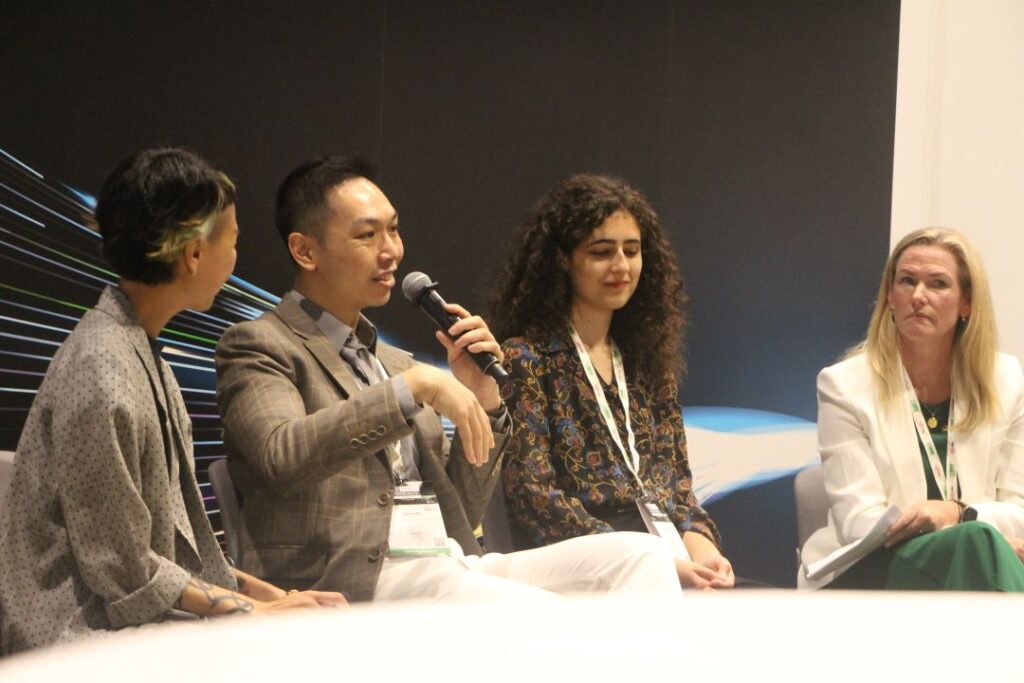
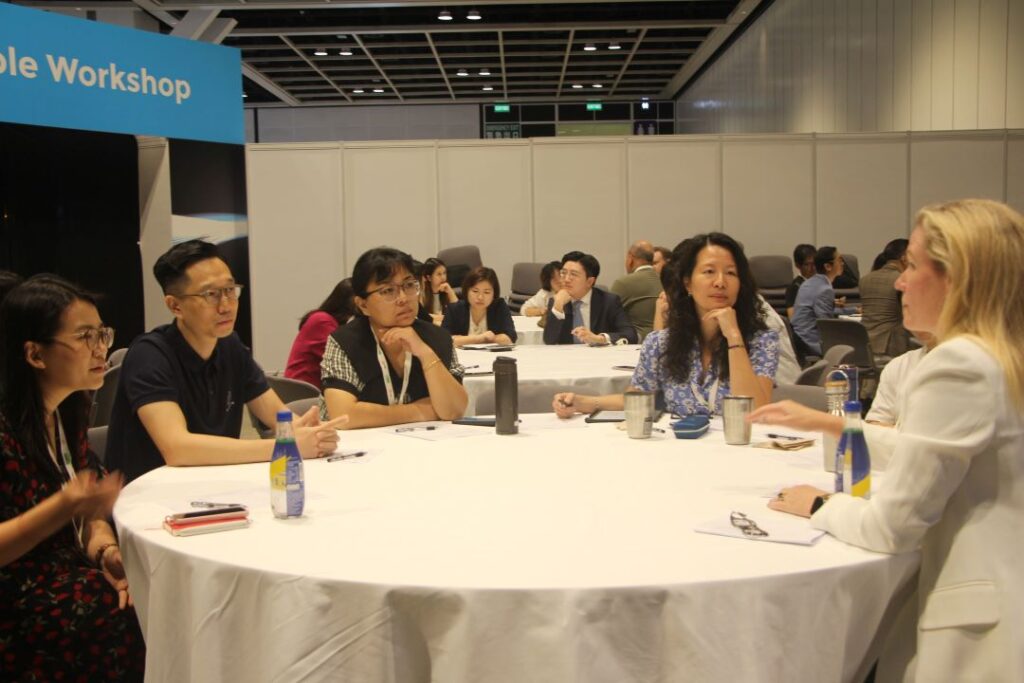
Knowledge Exchange on Talent Acquisition, Engagement, and Development
As a small, diverse, and multigenerational team, we at Foundation for Shared Impact (FSI) have normalized the hybrid workplace before COVID-19, as we believe autonomy and flexible schedules are two factors that contribute to the flourishing of our employees. Believing in the importance of equipping youth with real work experiences and transferable skills to ensure a smooth school-to-work transition, we have been offering Hong Kong youth internship placements in social impact organizations through our award-winning experiential learning Impact Lab Course since 2012. Through the numerous Impact Jams we organized for our corporate partners to engage their existing talents to nurture the next generation of leaders and workers, we have identified win-win solutions for talent acquisition, engagement, and development through socially impactful initiatives.
As a gap-filler and connector of various stakeholders in society to drive systems change, we wanted to gauge the thoughts of professionals across different sectors on the current landscape of talent acquisition, engagement, and development in Hong Kong, and share our knowledge and experiences in co-creating solutions with youth as well as our partners in the private and social impact sectors.
This prompted us to organize the Rethinking Talent Development workshop at ReThink HK 2024 on 12 September, to help participants identify ways to achieve the S in ESG by becoming the solution to talent acquisition, engagement, and development. It was also our aim for corporate professionals to see the importance of leveraging the collective intelligence of the multigenerational workforce, as it can help companies better navigate the various challenges in society and the business sector.
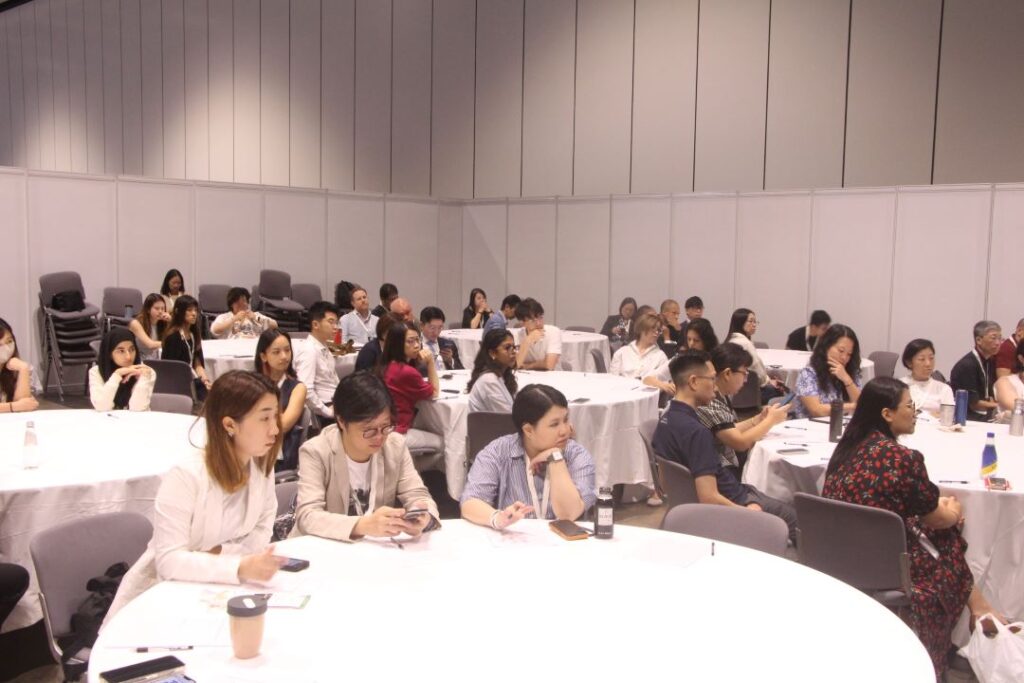
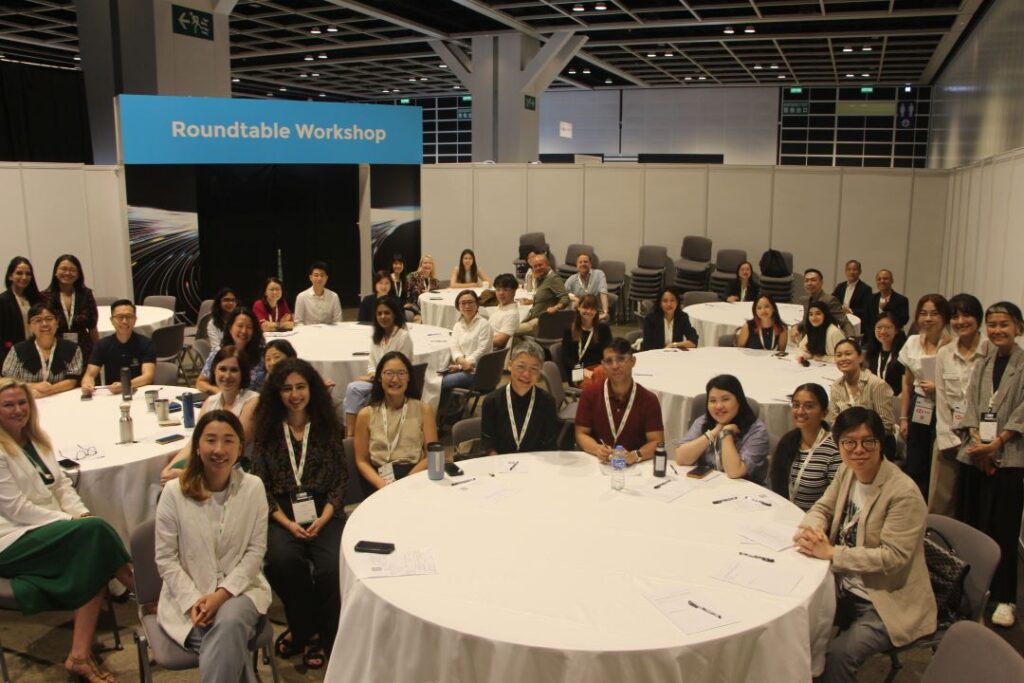
Talent Integration, Purpose-driven Company Culture, Authentic DEI, Human and Workplace Skills
The venue of our roundtable workshop almost reached full capacity with C-suite and senior management professionals, human resource specialists, and college youth hailing from diverse sectors, including education, construction, legal services, logistics, financial services, philanthropy, and nonprofit.
The roundtable workshop kick-started with a panel discussion, where Lisa Petrie, Head of Diversity, Equity and Inclusion, Asia Pacific, Goldman Sachs, and Steven Ng, APAC Regional Head of Leadership & Learning, Baker McKenzie, provided an overview of the talent acquisition, engagement, and development landscape in Hong Kong and initiatives at their respective companies. On the other hand, Kyra Krall, a fresh graduate currently a research assistant at The University of Hong Kong, informed the discussion with the qualities young talents look out for when applying for a job at a company.
“There are challenges and opportunities,” said Steven. “In the short term, we are experiencing a talent shortage in certain fields and positions, and the Hong Kong government is very focused on attracting top talents. According to the Immigration Department, the Top Talent Pass Scheme (TTPS) received more than 93,000 applications as of 31 July 2024. In the long term, our focus should be on how we can integrate these newly arrived talents with the local talents to create bigger impacts together, and we should engage with the industries to identify the types of talent to attract, to align talent management strategy with the evolution of the business landscape of Hong Kong.”
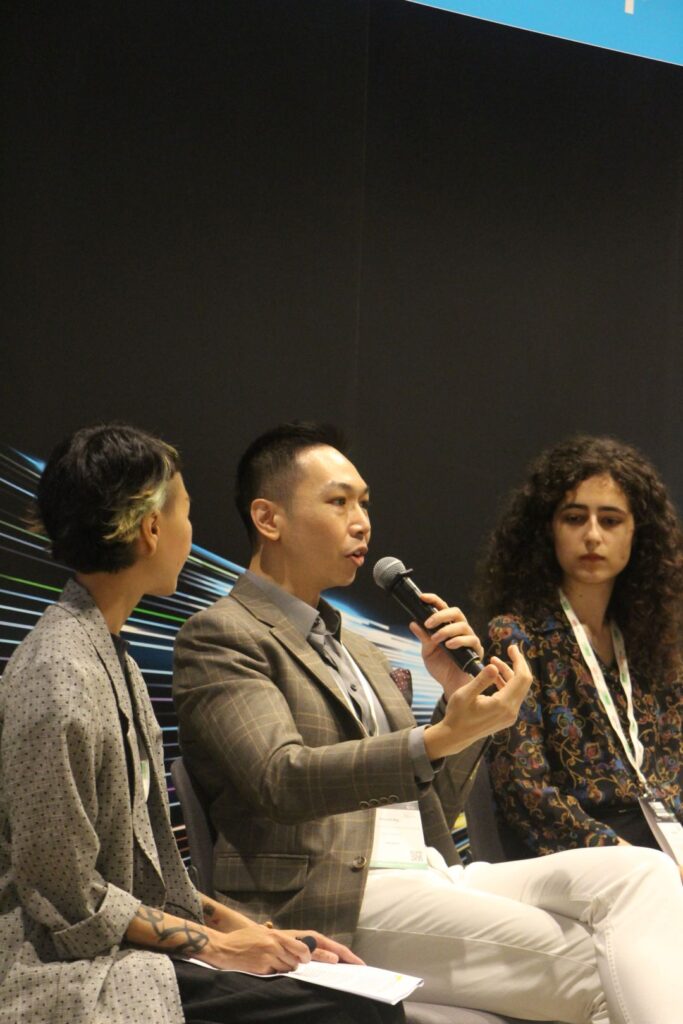
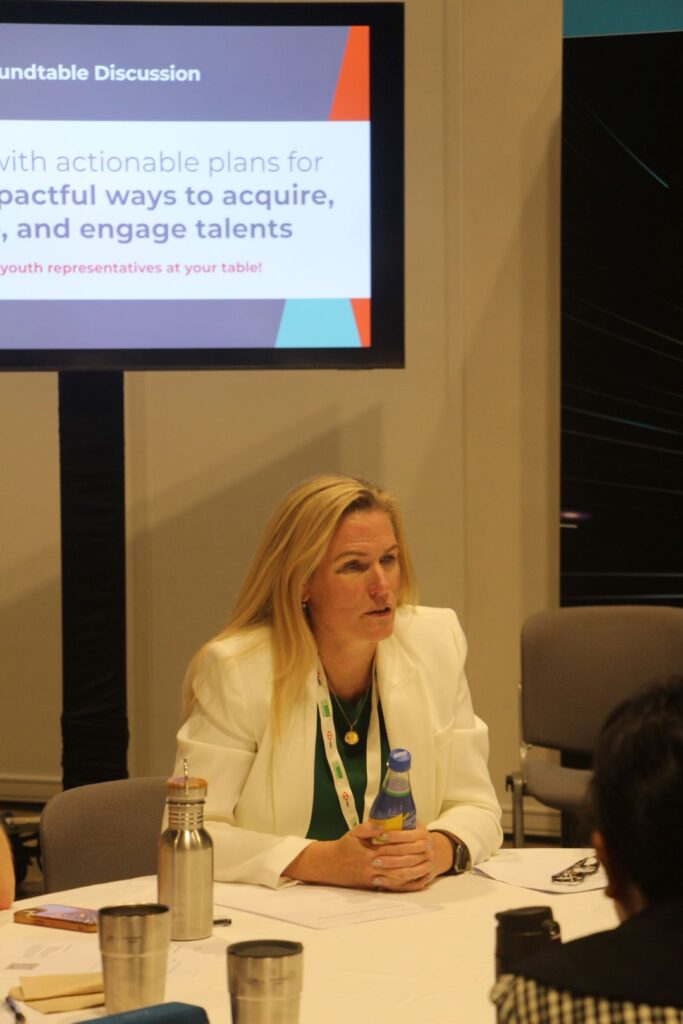
Contrary to the situation facing many industries, financial services continue to see an abundance of talent in Hong Kong, according to Lisa. “Hong Kong remains an attractive market for talent and we are seeing an abundance of talent across all areas for Goldman Sachs.”
Elaborating on the key elements of talent management, Lisa added: “We recently conducted employee interviews with associates from all divisions across Asia-Pacific to understand key trends and focus areas for talent integration and retention to inform future enhancements. Through these interviews, we confirmed that the pull factor to Goldman Sachs for entry-level talent is our collaborative culture, our people, and advanced training opportunities, particularly at entry level. We also discovered that, in order to retain our talent, we need to invest in uplifting our managers’ capabilities to be able to coach and have meaningful and honest conversations about career opportunities and career advancements.”
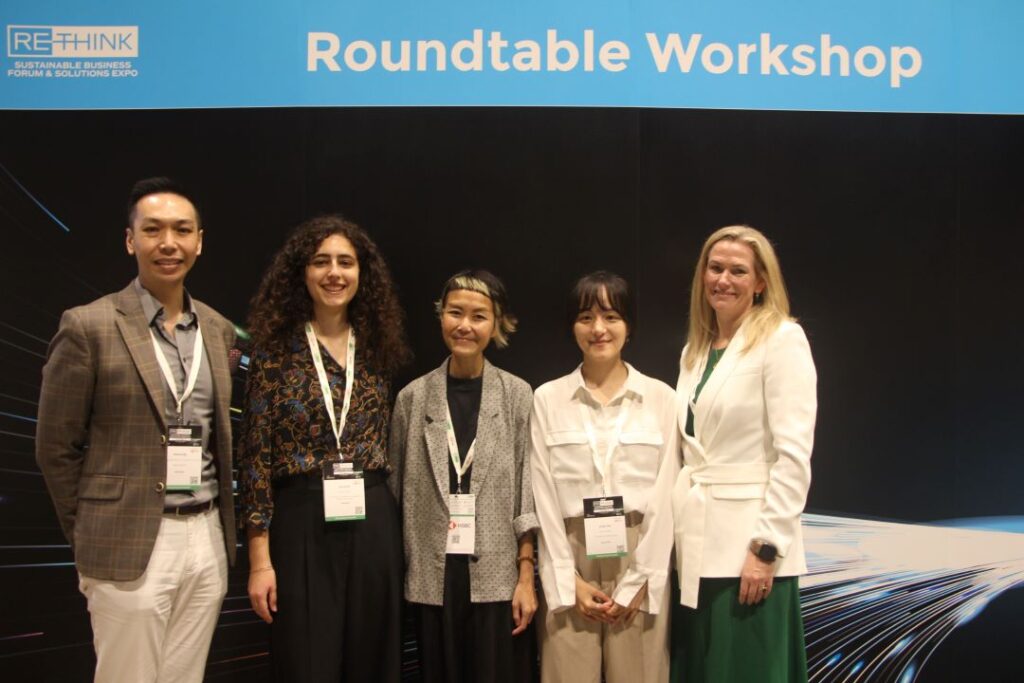
A collaborative culture and advanced training opportunities for employees are certainly some initiatives that appeal to young talent. But there are more, according to Kyra: “I look out for whether the company offers me the opportunity to create positive social impact through my work, whether it offers training on diversity, equity, and inclusion, and whether it adheres to its values of, for example, diversity in leadership positions and the team. I would also want to work in a company that offers work/life balance, flexible hours, paid leave, and the opportunity to rotate across different disciplines to learn new skills.”
As learning and development and human resource professionals, Steven and Lisa shed light on the skills and traits that employers look for in young talent today, particularly with increasing automation in the workplace. These include a mix of human and workplace skills:
- Human Skills: analytical and cognitive skills, self-efficacy skills (e.g., resilience, adaptability, learning), problem-solving, communication, tenacity and drive
- Workplace Skills: teamwork, collaboration, divisional knowledge
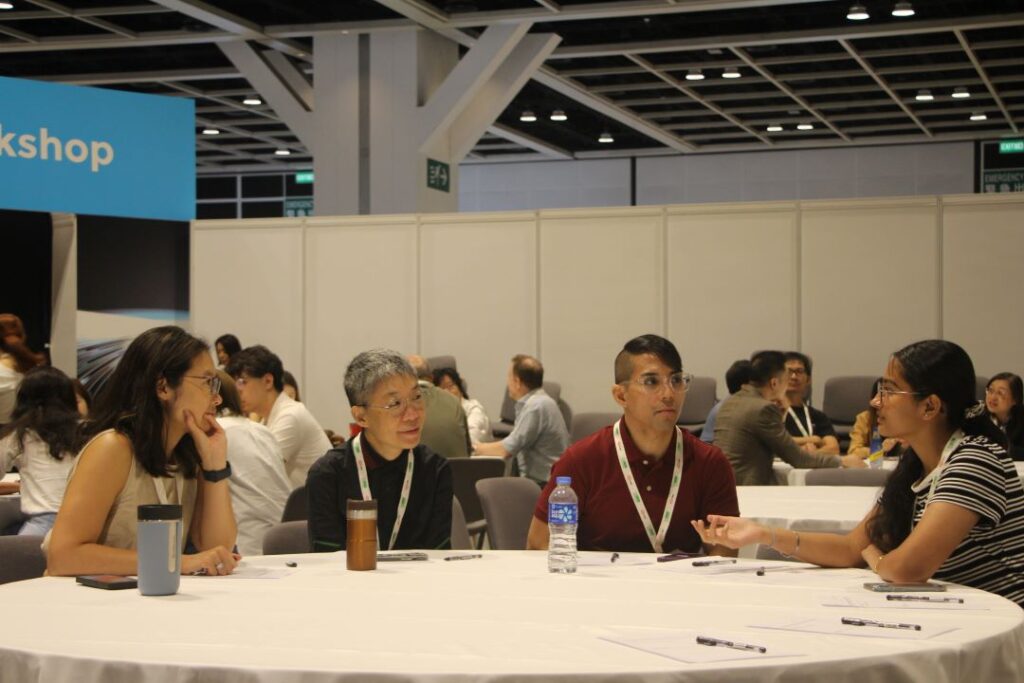
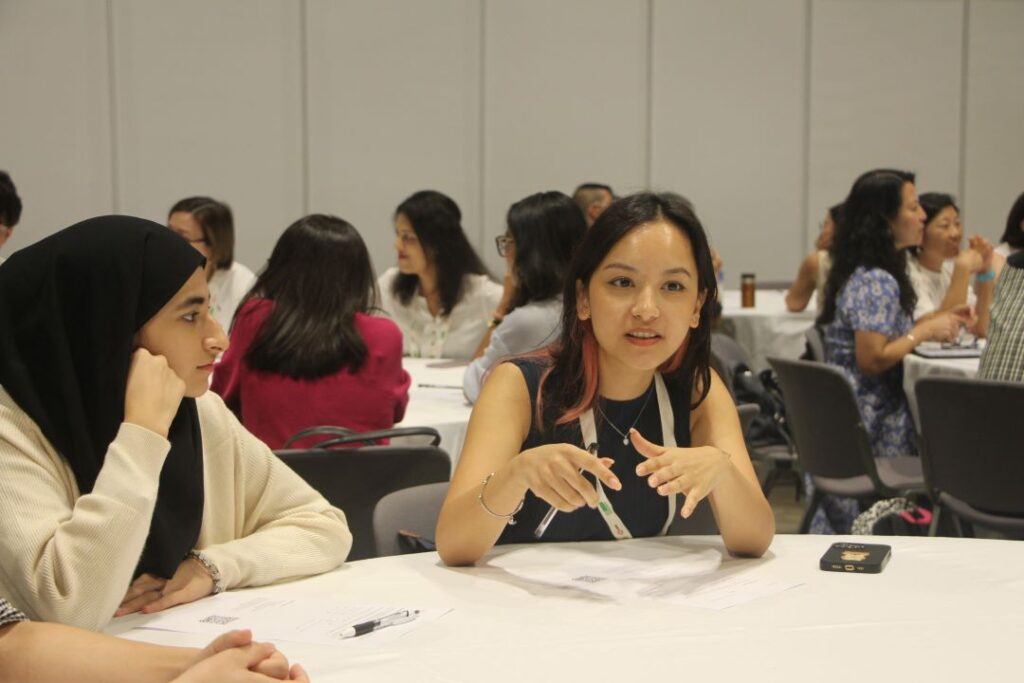
Win-Win: Engaging Existing Talent to Nurture Next Generation of Talent
At any typical workplace today, there are easily three generations of workers, if not more. We’re talking about a synergy of industry and institutional knowledge, fresh perspectives, new ideas as well as diversity in gender, culture, age, and styles of thinking and working. This is collective intelligence that companies can and should leverage to effectively navigate the various challenges in society and the business sector.
But first, companies must promote communication, relationship-building, and collaboration within this multigenerational workforce. One way to do this is by engaging existing employees to use their skills and knowledge to nurture the next generation of talent. As FSI’s Impact Jams with Goldman Sachs (and other corporate partners) have shown, this not only allows employees to find purpose and a sense of belonging in the workplace by giving back to the community, but it also enables companies to achieve the S in ESG by becoming a solution to talent acquisition, engagement, and development.
“At Goldman Sachs, we have a fairly sophisticated offering of service to the community. One example is our global volunteering initiative, Community TeamWorks, where we partner with nonprofits such as FSI through their Impact Jams initiative,” said Lisa. “In fact, I joined a recent Impact Jam, where we offered guidance and advice to youth on their career planning, and we also helped them prepare for job interviews and enhance their resumes.
“These intentional experiences are mutually beneficial. Our corporate volunteers can meet people from different backgrounds; work with colleagues they otherwise wouldn’t collaborate with to pool together collective wisdom to help under-resourced youth and other FSI beneficiaries; use their skills and expertise for greater good, and also to develop their leadership traits and capabilities such as empathy, vulnerability, humility, authenticity. Simultaneously, under-resourced youth and other beneficiaries gained access to valuable advice and support that they otherwise wouldn’t be able to afford or access.”
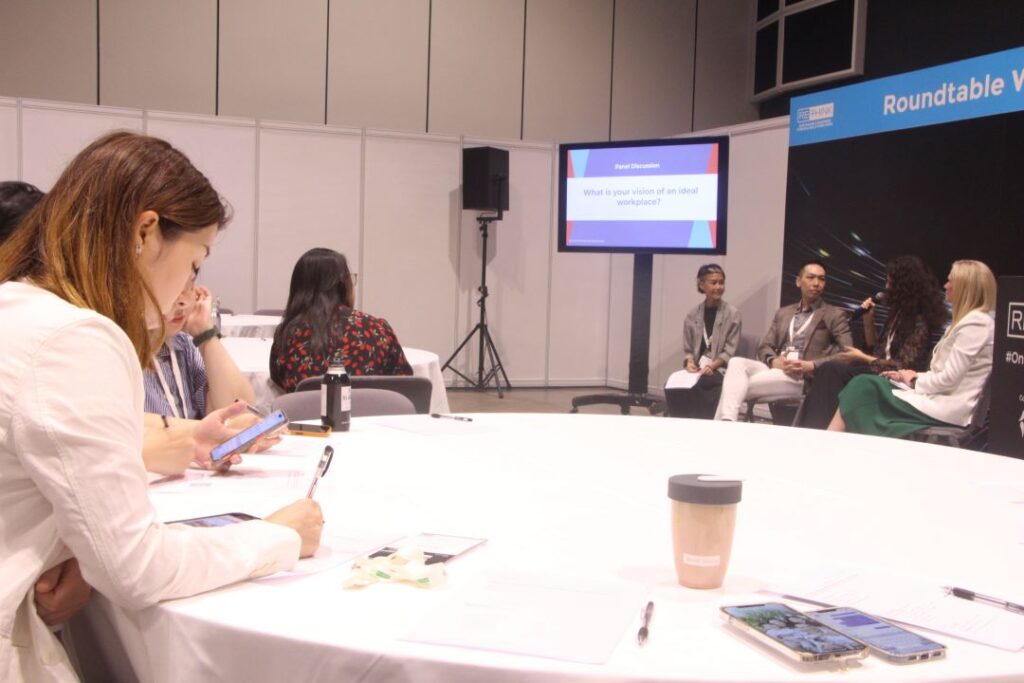
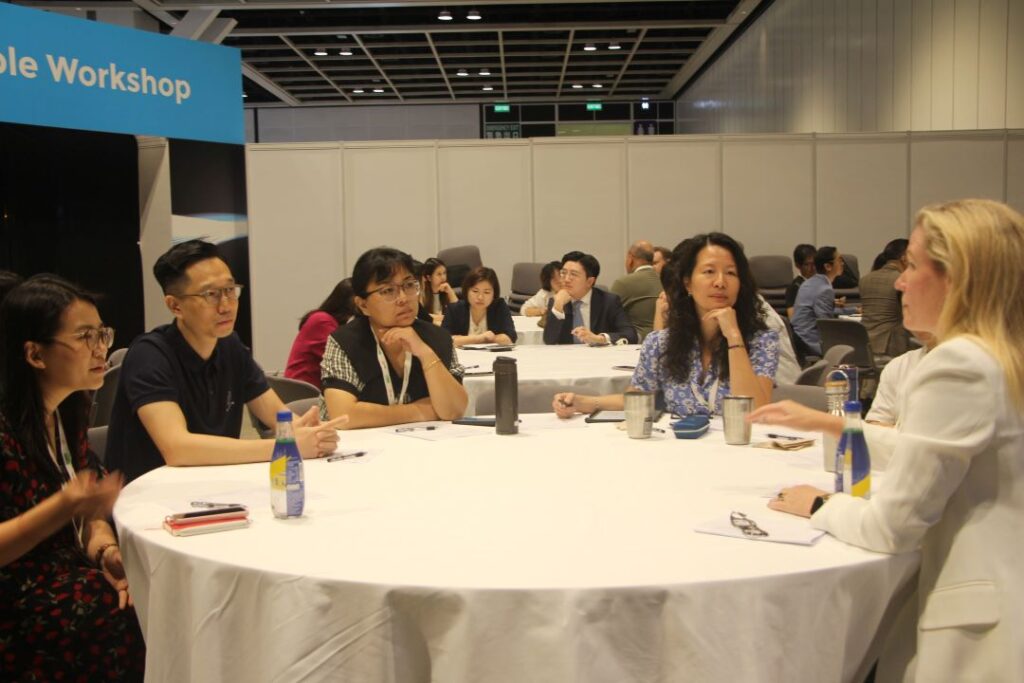
Corporate social responsibility is also a core program at Baker McKenzie. “In fact, July was the pro bono month across the entire firm globally, and all of our offices got even more engaged with our communities,” said Steven. “In Hong Kong, we hosted a two-day job shadowing program for students attending the lower-band secondary schools. These students are interested in developing a legal career, but they don’t have as much access to speak with people in the industry or internship opportunities as others. The students benefited from learning more about what lawyers really do, and we benefited by understanding what’s top of mind for a broader range of youths. We also provided some training courses covering presentation skills and business writing, so they could practise some of the key skills of being a lawyer.”
Indeed, companies are pivoting to retain and develop existing talents through socially impactful initiatives, but they must also do more to acquire young talents. When asked what kind of Impact Jam and employee engagement and development initiatives she would like to see in a workplace, Kyra said: “For young people planning for their career, Impact Jams on career mentorship can help make the process less overwhelming. Impact Jams on language exchange, for example, can foster communication amongst colleagues from different backgrounds, and mental health workshops can open up conversations to help employees find ways to handle stress or cultivate healthy working habits. I would also like to see Impact Jams or DEI training initiatives that make employees feel safe and respected at work while equipping them with the resources they need to be responsible members of the community.”
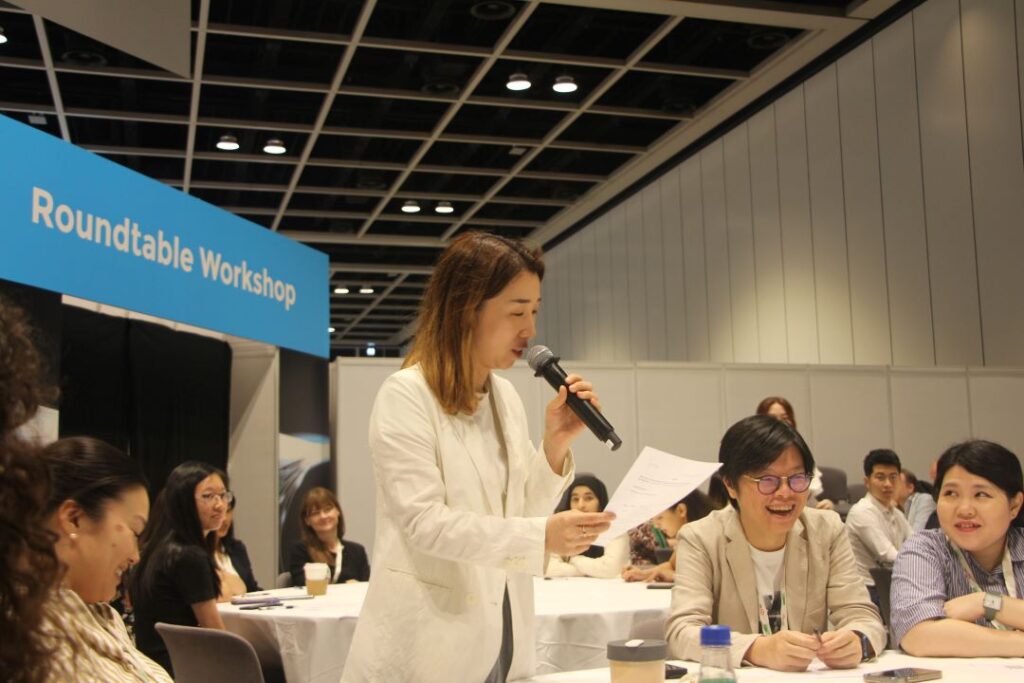
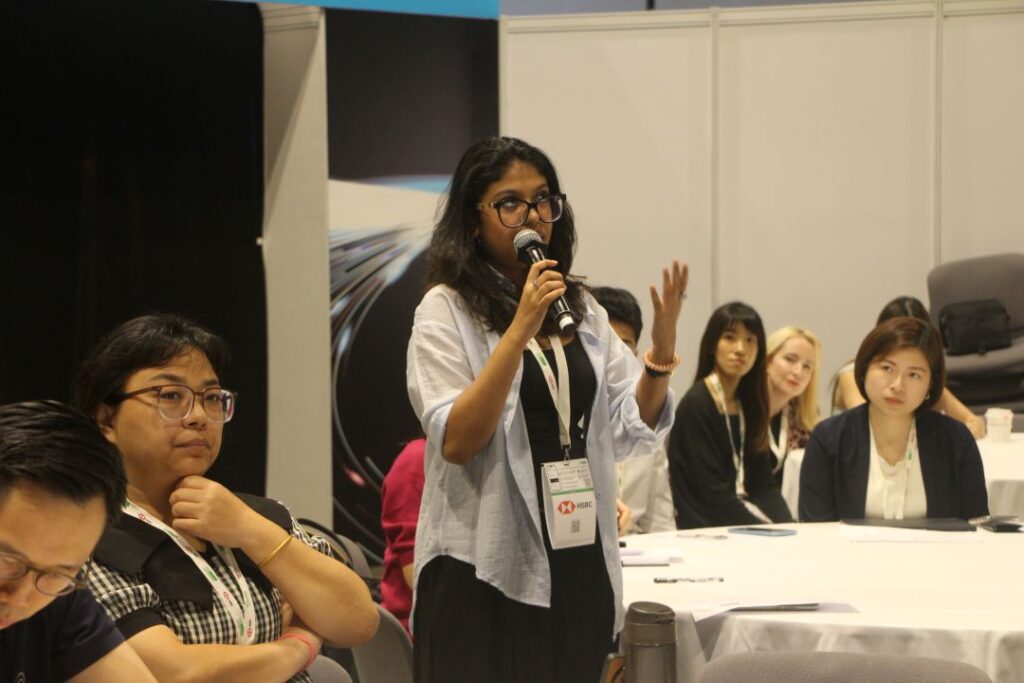
The Pledge: Build a Healthy, Resilient, Sustainable Multigenerational Workforce
Informed by the panel discussion, workshop participants spent 30 minutes to discuss with their fellow participants at their roundtables to brainstorm actionable solutions, which they would endeavor to implement in their respective companies to enhance talent acquisition, engagement, and development endeavors.
FSI’s roundtable workshop was a great success, with all participants agreeing that it was a well-organized and informative workshop, and some have already shared initial ideas of their actionable plans.
Said Andrea Qi, a Vice President at Goldman Sachs: “I’m planning a leadership development program next year.”
But Andrea isn’t the only one leaving the workshop with plans to help colleagues find purpose in their professional lives. “I’m planning to host coaching programs for younger colleagues and engage them further with purpose,” said Louisa Kung, Greater China Corporate Responsibility Lead at EY. “I also look to organize networking or volunteering programs to enable colleagues to expand their network both internally and externally.”
Said Maria Tong, Senior Learning and Development Manager, MTR Corporation Limited: “I plan to organize an initiative for employees to come up with social impact projects that they are passionate about. I would also like to have honest development conversations with young talents regarding their true career aspiration.”
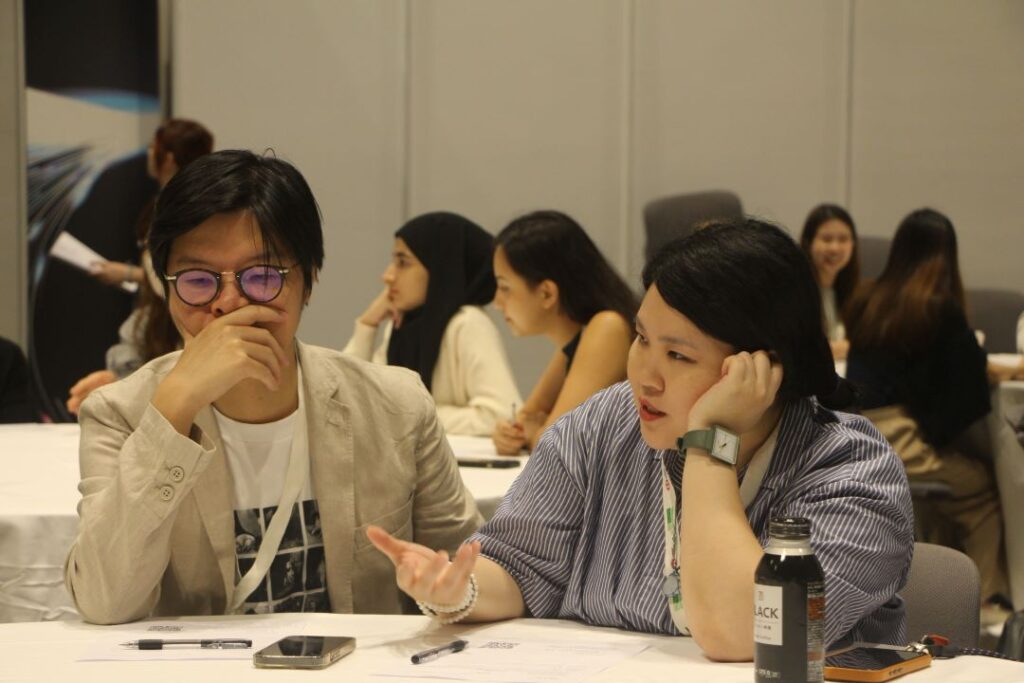
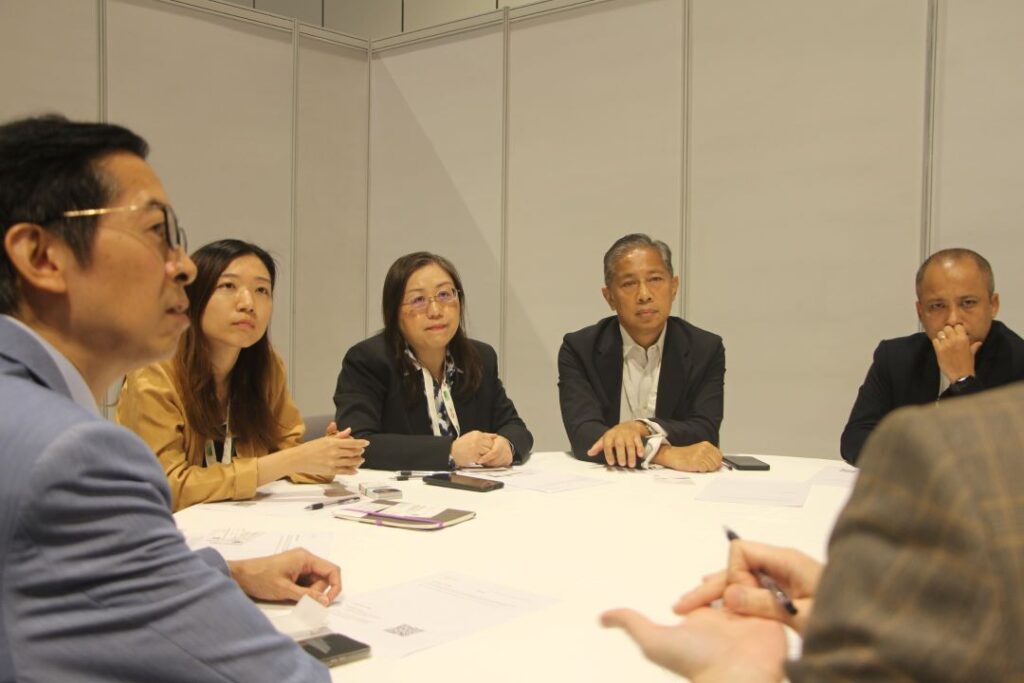
“I will look into developing nontraditional recruitment pathways,” said Jeremy Tang, CEO of JT Asia Consulting. “I will also engage with the team to ensure a sense of purpose and encourage social initiatives at the company and/or individual level.”
And leaders in the education sector have pledged to enhance talent acquisition, engagement, and development too. “I will continue to try to reach out to professionals in talent acquisition roles to help them better attract and retain talent for their companies,” said Vivian Chu, Lecturer and Deputy Programme Director at the Master of Social Sciences in the field of Sustainability Leadership and Governance, The University of Hong Kong.
Also finding our workshop helpful were youth planning for their career as well as HSBC Scholars, who participate in events and activities organized by FSI to make meaningful contribution to the community. “I loved hearing everyone’s insights and received some valuable advice on what companies want and are willing to put out for the younger generation,” said Abeer Sayed, an HKU Space student. “Companies should allow young employees to work on passion projects aligned with the companies’ mission and vision. This way, the company will be able to identify the talents, skills, and interests of the young employees, while the young employees can use this as an opportunity to showcase their interests in a more in-depth way.”
“I want to help foster innovation by integrating varied perspectives, creating a collaborative and inclusive setting where each generation contributes its unique insights to drive collective success towards a common vision and mission,” said Ho-lun Yau, a student at the Hong Kong University of Science and Technology.
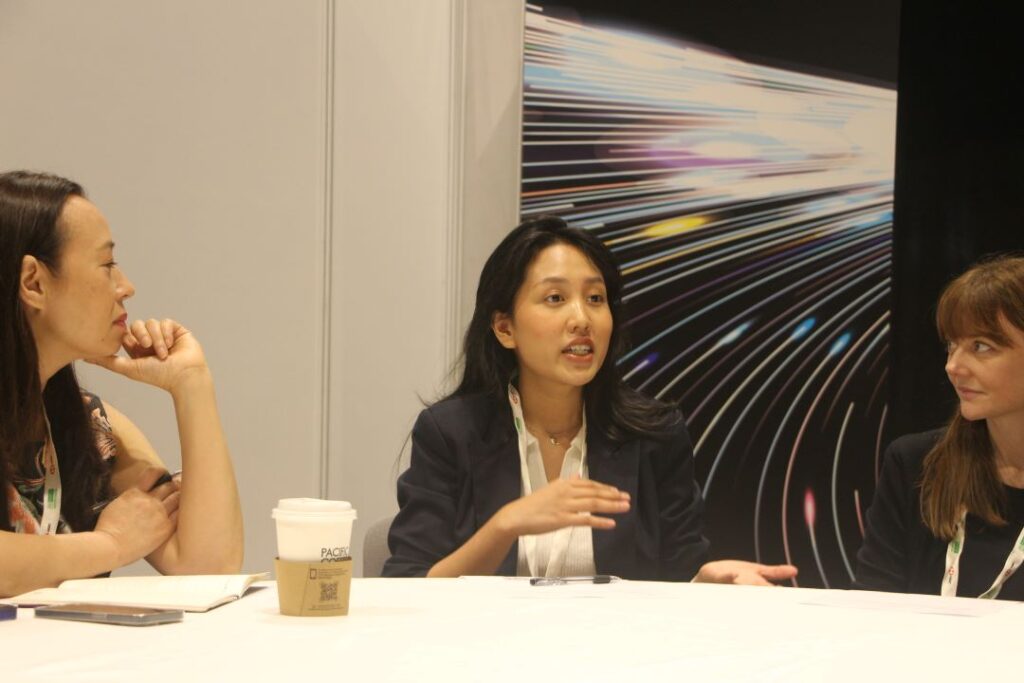
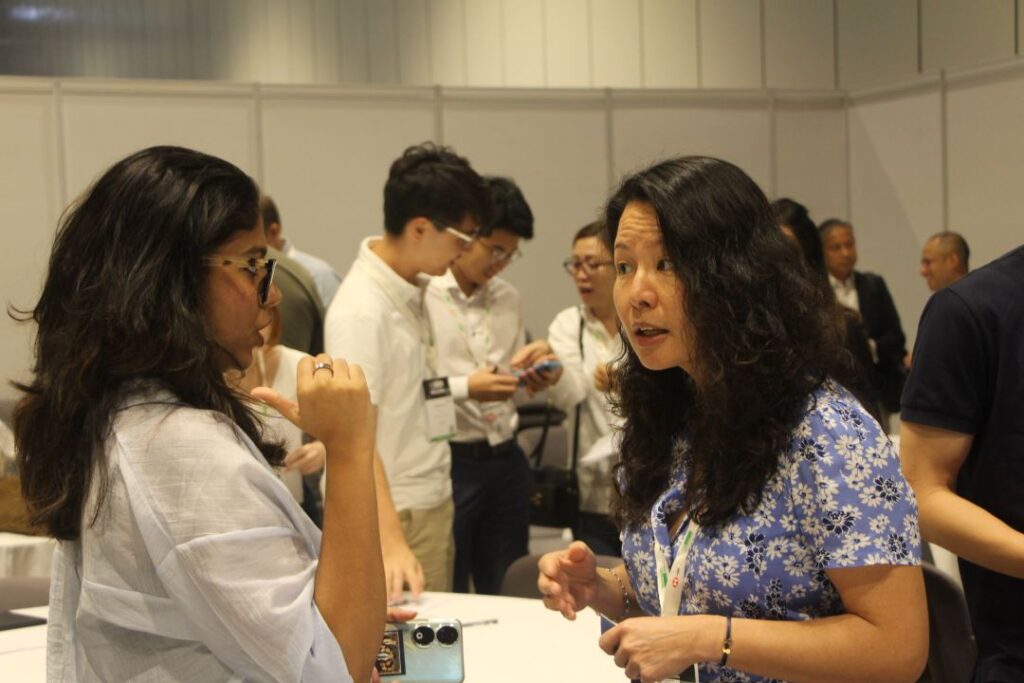
Get In Touch
At FSI, we have been designing and implementing impactful corporate volunteering programs since 2020. Through our Community Connections Program, we have connected close to 400 corporate professionals with 140+ social impact organizations through skills-based volunteering. From legal support to marketing advice, risk management to board directorship, we have helped social impact organizations build capacity, while enabling corporate professionals to start their social impact journey and find purpose in their workplace.
Our widely acclaimed Board Director Training has trained 360+ effective leaders in the private and social impact sectors, which explains why our training is trusted by multinational firms like Clifford Chance, Credit Suisse, Macquarie, Mayer Brown, PwC, Nomura etc. as the training program for board governance and effective leadership.
As mentioned at the panel discussion, our Impact Jam offers a win-win solution for talent acquisition, engagement, and development by engaging corporate employees to leverage their skills and expertise to uplift under-resourced communities.
If you would like to engage FSI for the design and/or implementation of socially impactful talent acquisition, engagement, and development initiatives at your organizations, get in touch with our Partnerships Manager, Leontine Chuang, at leontine@shared-impact.com!



